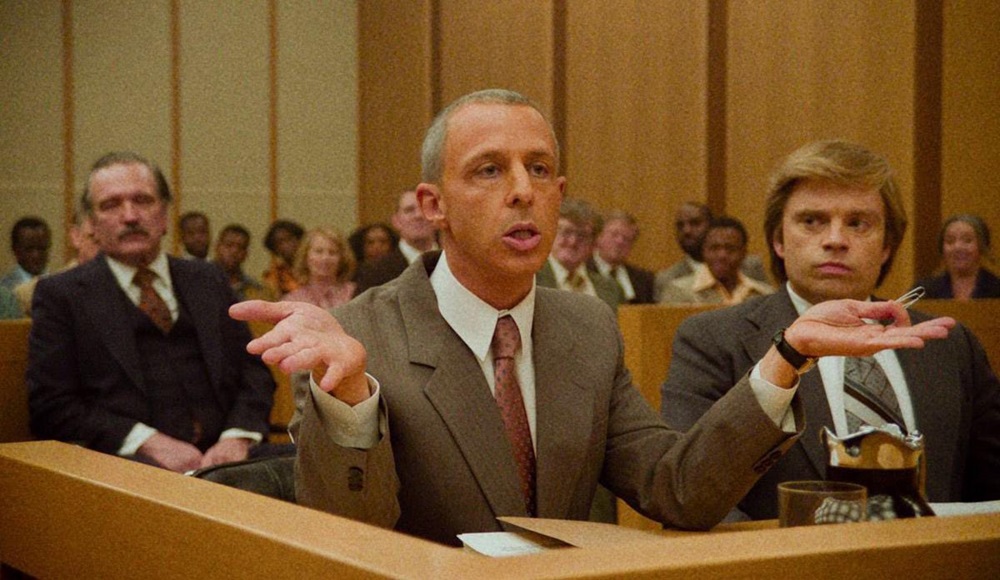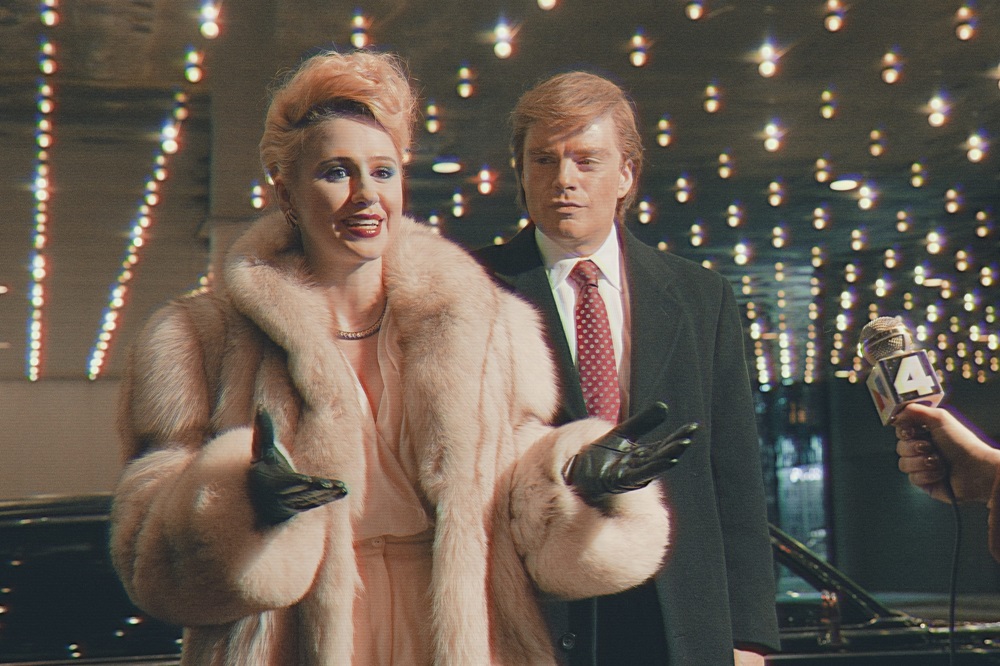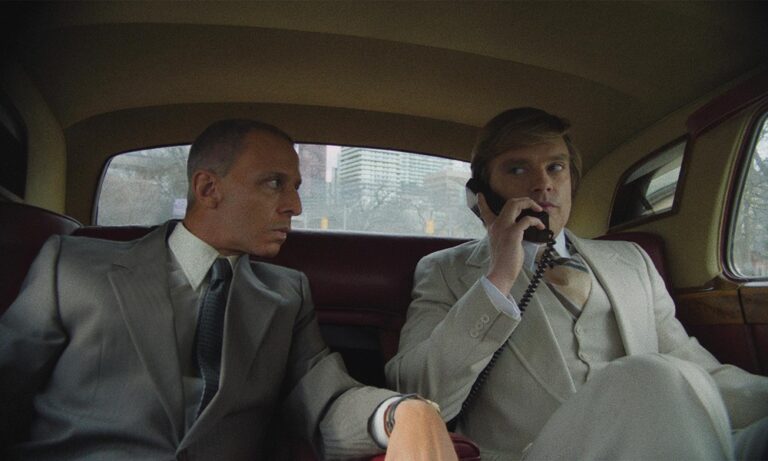With so much already documented about Donald Trump’s public persona—from his controversial business dealings to his tenure as president—any film tackling the man’s origins faces the challenge of finding a fresh perspective. Ali Abbasi’s latest picture, “The Apprentice,” arrives at a time when Trump remains an omnipresent figure in American life, casting a long shadow over politics, media, and popular culture. Abbasi then attempts to meet the challenge by focusing on Trump’s early years in the 1970s and 1980s, framing his rise as an “apprenticeship” under the ruthless lawyer Roy Cohn.
But while it promises to be a deep dive into the making of a modern-day mogul, “The Apprentice” struggles to maintain focus, wavering between serious drama and breezy montages, often to the detriment of its more impactful moments. And although Sebastian Stan and Jeremy Strong deliver award-worthy performances as Trump and Cohn, respectively, the film’s inconsistent tone and reluctance to linger on difficult scenes undermine its overall impact. The result is a biopic that deftly touches upon the themes of power and greed, but ultimately feels like a missed opportunity for what could have been a more compelling character study of one of the most divisive figures in modern history.
An Origin Story from a Post-Watergate America
“The Apprentice” opens with Richard Nixon’s “I’m not a crook” speech, immediately situating the audience in a post-Watergate America tainted by cynicism and corruption. This sets the stage for the two characters’ first encounter at an exclusive New York restaurant. We see Trump (Stan) name-dropping the city’s elite to impress his date. And when she asks him, “Why are you so obsessed with these people?” Trump’s coy response, “I’m just curious,” hints at the ambition that will soon define his rise.
From the moment Cohn (Strong) enters Trump’s life, Abbasi establishes a mentor-apprentice dynamic that sets the narrative in motion. Cohn reveals his three core rules: Attack, attack, attack. Admit nothing, deny everything. Always claim victory and never admit defeat. In turn, these become Trump’s playbook; and Cohn’s views on truth as a malleable, constructed thing are passed down to his eager student.
This lens is intriguing because it positions Trump, not just as an individual, but as a product of a particular era—one marked by cynicism, rampant greed, and the decay of institutional trust. Cohn, once a staunch McCarthyism enforcer and later a key political fixer in New York, teaches Trump the power of deception, manipulation, and relentless self-promotion. In doing so, “The Apprentice” offers a glimpse of how these lessons shaped not only Trump’s business empire, but also the persona that would come to dominate American politics decades later.

Complex Real-Life Figures Deserve Multilayered Portrayals
This depiction of Cohn as the primary architect of Trump’s persona also raises an intriguing question: Is Trump simply a product of Cohn’s manipulation, or does the young businessman naturally embody the same amorality? The film leans toward the former, almost painting Trump as someone swept along by Cohn’s influence rather than a figure fully in control.
This framing, in itself, might court controversy, and understandably so. However, it also reflects the complicated nature of the man. As a businessman, Trump is portrayed as both charming and ruthless, someone who can shower praise one minute and act without conscience the next. Stan captures this duality with a surprisingly restrained performance, avoiding the caricature that could have easily turned this film into a parody. Rather than mimic Trump’s mannerisms, Stan evokes his essence, depicting Trump as a man who is simultaneously ambitious, insecure, and showy. It’s a nuanced approach that adds layers to the character without venturing into the Alec Baldwin School of Farce.
On the other hand, Strong’s turn as Cohn is equally impressive. He taps into Cohn’s trademark intensity with chilling precision, making every scene he appears in feel electric. Whether coldly instructing Trump on how to navigate legal loopholes or hosting grotesque parties with the motto, “If you’re indicted, you’re invited,” Strong embodies Cohn’s contradictions: a self-loathing gay man who openly insults homosexuals, and a master manipulator who claims to uphold truth while actively distorting it. Strong’s scenes inject a palpable energy on screen, though his character’s absence in key stretches makes you wish the narrative had leaned more into this dynamic.
Tonal Inconsistencies and Missed Opportunities
While the performances are strong across the board, the film struggles with a jarring tonal inconsistency. It oscillates between a serious biographical drama and a fast-paced black comedy, similar to “Vice,” “The Color of Money,” or “The Wolf of Wall Street.” This tonal confusion undercuts some of the more impactful moments, particularly its treatment of Trump’s relationship with his first wife, Ivana (Maria Bakalova).
One particularly troubling scene shows Trump raping Ivana after she mocks his weight and hair loss. While the sequence is shocking, the film glosses over it almost immediately, returning to its breezy, montage-heavy storytelling. This abrupt shift in tone feels disrespectful, leaving the audience with the unsettling impression that the assault is just another minor incident in Trump’s life. And with the real Ivana later on retracting her accusation that Trump raped her; it’s a glaring red flag in a film that otherwise attempts to humanize its subject, raising serious questions about the filmmakers’ intentions given their failure to justify the scene’s inclusion.
Moreover, the narrative feels repetitive at times, particularly in its depiction of Trump’s business ventures and personal rivalries. While it is interesting to see how Trump gradually distances himself from both Cohn and his father Fred (Martin Donovan), the structure follows a predictable pattern: a victory, a betrayal, and a moral compromise. This formula makes the story feel more like a straight-cut reel than a fully fleshed-out exploration of Trump’s psyche.

What Works, and What Falls Short
Abbasi’s direction, thanks to the cinematography by Kasper Tuxen (“The Worst Person in the World”), effectively evokes the gritty aesthetic of 1970s and 1980s New York. The grainy texture and neon-drenched visuals immerse the audience in the era, capturing the allure and sleaze of Trump’s world. Laura Montgomery’s costume design also deserves praise for walking the fine line between gaudy and elegant, bringing to life Trump’s ostentatious taste for opulence.
At its best, the film offers sharp insights into Trump’s worldview and the ways in which his alliance with Cohn shaped his approach to business and politics. Dialogue from Cohn like “Don’t tell me about the lawsuit; tell me who the judge is” reflects the transactional mindset that Trump adopts from the man. In addition, the idea that “you create your own reality,” as Cohn tells him, becomes the movie’s central theme. In more ways than one, this encapsulates not only Trump’s personal philosophy but also the toxic culture of modern politics.
However, the film falters when it tries to juggle too many themes without committing fully to any. Is it a straightforward biopic? A satire of ambition and greed? Does it vilify its central character, given its clear choice of not lionizing him? Or is it simply a tragic character study? Personally, I feel like Abbasi himself seems uncertain, and this lack of focus diminishes the film’s impact. The narrative often feels like a patchwork of loosely connected episodes rather than a cohesive story.
‘The Apprentice:’ A Portrait of Power That Sputters in Execution
Ultimately, “The Apprentice” is a bold but lacking attempt to explore the origins of Donald Trump’s persona. While Sebastian Stan and Jeremy Strong deliver performances that would surely court the award-giving bodies, the film’s jarring tone and questionable narrative choices prevent it from being a standout tale about power and the corrupting influence of mentorship.
Abbasi’s direction shows flashes of brilliance, but the movie falls short of being either a gripping biopic or a biting satire. Yes, there is value in the way he presents Trump’s rise as a moral descent—whether viewed as a hero’s journey or a villain’s origin story depends largely on the audience. However, Abbasi’s tendency to downplay serious moments undermines the movie’s credibility and leaves a sour taste.
The final scene, which shows Trump droning on about his own greatness, perfectly encapsulates “The Apprentice” in a nutshell. Just as his ghostwriter looks clueless as to where Trump is going with his tangents, we, as an audience, are equally uncertain about what the film is really trying to convey.

Ali Abbasi’s “The Apprentice” premiered at the 77th Cannes Film Festival last May 20, 2024. It had its theatrical release in the United States on October 11, 2024. Follow us for more coverage.


